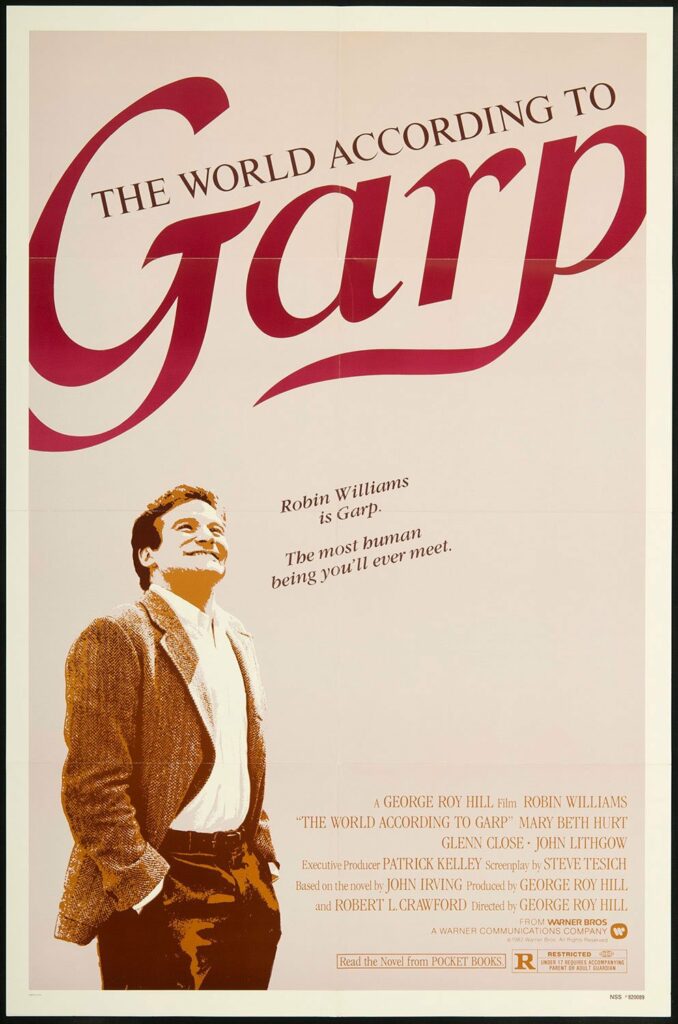The World According to Garp, director George Roy Hill‘s adaptation of John Irving‘s semi-autobiographical novel, is remembered as one of Robin Williams‘ best-ever dramatic roles, right at the beginning of his career. It’s also an extremely bizarre and disjointed film, which satirizes feminism while having mostly incoherent things to say about it.

The film, which arrived in the summer of 1982 — 40 years ago this week — was just the third film Williams starred in, and it arrived just months after Mork & Mindy went off the air. Williams portrays decades in the life of T.S. Garp, a husband, father, and successful writer, amid gender-related controversies of the 1960s and ’70s.
The Plot
Garp is the son of Jenny Fields (Glenn Close, playing Williams’ mother despite being just four years older than him), and he came into the world in a unique way: Jenny, a feminist author, and celebrity, had questionably consensual sex with a wounded soldier, so as to get pregnant and never need to deal with the father again.
The film goes back and forth between Garp’s rise, from childhood to college his career as an author, and Jenny’s story, as she operates a woman’s center/intellectual salon/battered women’s shelter out of a large seaside estate. Meanwhile, we get weird scenes like a plane crashing into Garp’s house, a confrontation with a speeding truck driver, and lots of amateur wrestling.
Garp gets married to a professor (Mary Beth Hurt), has kids, and suffers various tragedies, as he and his wife both fall into affairs; meanwhile, Jenny’s circle includes an NFL star-turned-transgender woman (John Lithgow) and a radical feminist coterie called the Ellen James Society, who cut their tongues out of solidarity with a girl who had her tongue cut out by a man.
Ahead of Its Time
The Lithgow element is perhaps the movie’s most surprising, as the movie treats a trans character with the sort of dignity practically unheard of for a movie in 1982, Lithgow’s Roberta Muldoon is not only treated as a complete human being with an inner life but also has someone who, as an ex-football player, isn’t above tackling the occasional misogynist. Roberta is also always called the right pronouns and accepted wholeheartedly in the feminist movement, even appearing without controversy at a women-only funeral. Weren’t there TERFs in the late ’70s?
The film’s take on feminism, though, is kind of incoherent. Jenny Fields is treated as selfish at best and, well, a rapist at worst, and the Ellen Jamesians as murderous extremists. Neither has much in common with any particular real-world feminist, at least not in a way that makes the satire connect.
The World According to Garp is well-acted, with Williams and Close both doing fine work and Lithgow earning the film’s only Oscar nomination. Its direction, by Hill (who also directed The Sting, Butch Cassidy and the Sundance Kid, and Slap Shot) is assured. The story, though, comes across as more than a bit confounding.




